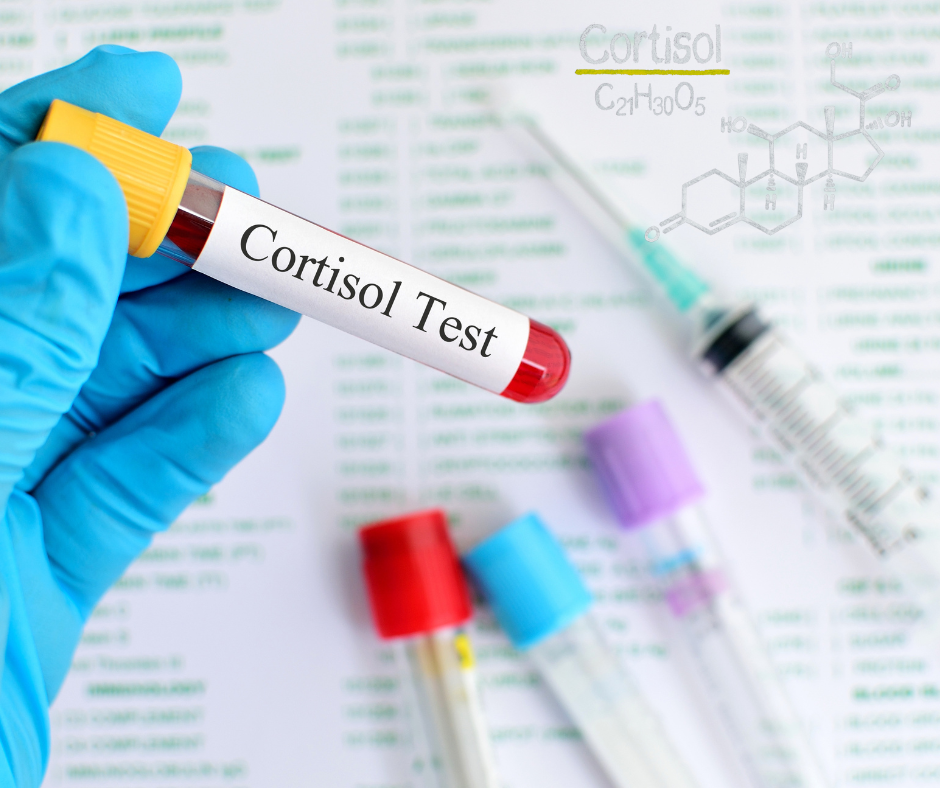High Cortisol Levels: Symptoms, Causes, and 5 Solutions

Have you ever felt a sudden rush of anxiety or found yourself feeling unusually fatigued? These could be signs that your body's cortisol levels are higher than normal. High cortisol, the body’s main stress hormone, affects your mood and overall health. In this detailed guide, we will explore what high cortisol levels mean, their symptoms, their causes, and effective solutions to manage and reduce these levels for a healthier lifestyle.
What are High Cortisol Levels?
Cortisol is often called the stress hormone because it is critical in how your body responds to stress. The adrenal glands produce it and regulate blood sugar, metabolism, and inflammation.
However, when cortisol levels remain elevated over a prolonged period, it can disrupt your body's normal processes and lead to serious health issues. High cortisol can affect everything from your blood pressure to your metabolism and even alter immune system responses.
It is vital to recognise when cortisol levels are high and to understand the potential long-term effects on your health. Elevated cortisol can weaken your immune system, disrupt sleep patterns, and make it harder for your body to recover from exercise or illness.
Symptoms of High Cortisol Levels
The symptoms of high cortisol can be quite varied and affect multiple aspects of your health and daily life. Common signs include rapid weight gain mainly in the face, chest, and abdomen, contrasted with slender arms and legs. People with high cortisol levels often experience severe fatigue, yet find themselves unable to sleep well.
They may also notice increased anxiety, irritability, or depression. Symptoms like high blood pressure, osteoporosis, and muscle weakness can occur physically. Skin changes such as bruises, purple stretch marks, and menstrual irregularities in women are also common. Recognizing these symptoms is crucial as it allows for earlier intervention, significantly improving the quality of life.
Causes of High Cortisol Levels
Several factors can lead to an increase in cortisol production. Chronic stress, whether psychological or physical, is the most significant contributor. Hormonal imbalances or endocrine disorders, such as Cushing's disease, can also cause elevated cortisol levels.
Lifestyle factors play a crucial role too; poor sleep, a diet high in sugar and fat, excessive caffeine and alcohol intake, and insufficient physical activity can all increase cortisol. Additionally, certain medications, such as oral steroids, can elevate cortisol levels as a side effect. Understanding these causes is essential for addressing the root of the problem and effectively managing cortisol levels.
5 Solutions to Manage High Cortisol
Levels
1. Optimize Your Sleep
Sleep is crucial for cortisol regulation. Striving for 7-9 hours of uninterrupted sleep per night is ideal. Establishing a consistent sleep schedule, ensuring your sleeping environment is dark and quiet, and avoiding stimulants like caffeine close to bedtime can significantly improve sleep quality. Additionally, relaxing activities such as reading or taking a warm bath before bed can help ease you into a better night's sleep. Regular sleep helps normalize cortisol levels and improves your overall health and mood.
2. Modify Your Diet
What you eat has a profound impact on your cortisol levels. Incorporating a diet rich in whole foods like fruits, vegetables, lean proteins, and whole grains is essential. These foods can help stabilize blood sugar levels and reduce cortisol fluctuations. Avoiding processed foods, high sugar intake, and large amounts of caffeine and alcohol can also help manage cortisol levels. Eating meals regularly throughout the day can prevent spikes and drops in blood sugar, which can influence cortisol. Consider including foods high in omega-3 fatty acids, such as fish and flaxseeds, which have been shown to reduce cortisol levels.
3. Exercise Regularly
Regular exercise is one of the best ways to lower cortisol levels. However, the type of exercise is important; while vigorous exercise can temporarily increase cortisol, regular, moderate exercise reduces it. Activities like walking, yoga, pilates, and other forms of gentle movement can be particularly effective. Keeping your exercise routine consistent and enjoyable is key to sustaining activity long-term without adding to your stress levels. Additionally, incorporating activities that you enjoy reduces perceived stress and, by extension, cortisol levels.
4. Practice Stress Reduction Techniques
Reducing stress is paramount in managing cortisol levels. Yoga, meditation, and deep breathing can significantly lower stress and cortisol. These practices help reduce cortisol in the moment and, when practised regularly, can lead to long-term improvements in managing stress. Other techniques include progressive muscle relaxation, guided imagery, and natural quiet time. Finding what techniques work best for you and incorporating them into your daily routine can be a game-changer for reducing cortisol.
5. Consider Supplements
Certain supplements to reduce cortisol can be beneficial in managing high cortisol levels. These include adaptogens such as ashwagandha, which has been shown to naturally reduce cortisol and improve stress response. Supplements like fish oil and magnesium also help lower cortisol and support overall health. However, it’s important to consult with a healthcare provider before starting any supplement to ensure they are appropriate for your specific health needs and to avoid interactions with other medications.
Conclusion
High cortisol levels can harm your health, affecting your mood and metabolism. By understanding the symptoms and causes of elevated cortisol, you can take proactive steps to manage it effectively. Implementing strategies to optimize sleep, modify your diet, exercise regularly, reduce stress, and consider supplements can all contribute to lower cortisol levels. Taking control of your cortisol levels improves your immediate health and protects your long-term well-being.